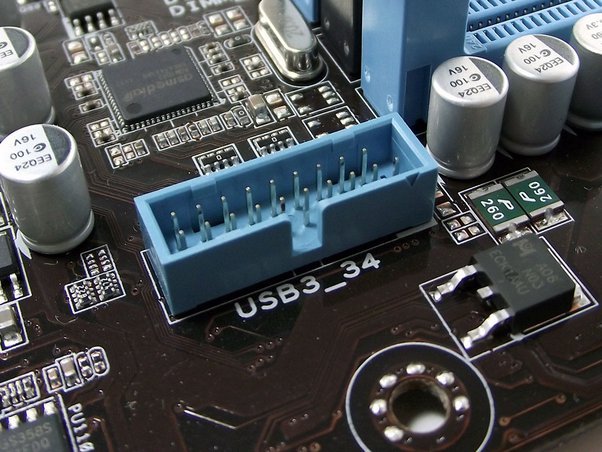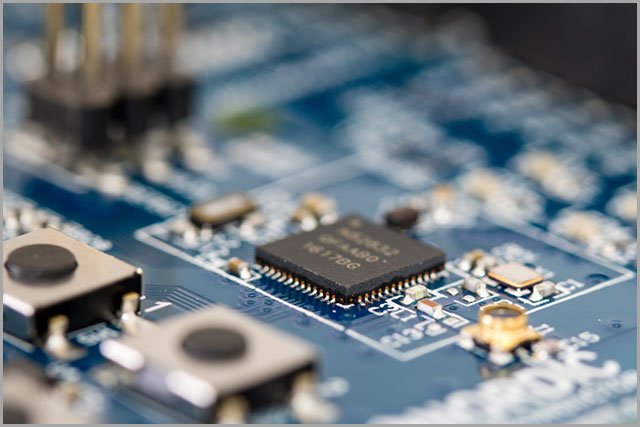No, not all motherboards have Wi-Fi and Bluetooth already installed. Some expensive ones might include them, but cheaper ones usually don’t.
In this in-depth exploration, we debunk common misconceptions surrounding Bluetooth compatibility in motherboards and delve into the various factors that influence its inclusion or omission. Additionally, we analyze aftermarket solutions for users seeking to add Bluetooth capability to their systems.
Table of Contents
Introduction:
In today’s interconnected world, Bluetooth technology plays a pivotal role in facilitating wireless communication between devices. From smartphones and smartwatches to speakers and peripherals, Bluetooth has become an indispensable feature in modern computing ecosystems. However, when it comes to desktop PCs, questions often arise about the presence of Bluetooth functionality in motherboards.
Understanding Bluetooth Technology:

Bluetooth technology, initially conceived as a wireless alternative to RS-232 cables, has evolved into a versatile protocol for short-range communication between electronic devices. Operating on the 2.4 GHz frequency band, Bluetooth enables data exchange and audio streaming over distances of up to 30 feet (10 meters), making it ideal for a wide range of applications.
With its low power consumption and broad compatibility, Bluetooth has become ubiquitous in consumer electronics, empowering users to connect and interact with their devices seamlessly.
Dispelling Common Myths:
Myth 1: All Motherboards Come with Built-in Bluetooth
Reality: Contrary to popular belief, not all motherboards are equipped with Bluetooth functionality. While many high-end and mid-range motherboards include Bluetooth support as a standard feature, budget-friendly or entry-level models may lack this capability to reduce manufacturing costs and target specific market segments.
Myth 2: Bluetooth Compatibility Depends Solely on Motherboard Form Factor
Reality: While motherboard form factor can influence feature availability, it is not the sole determinant of Bluetooth compatibility.
Factors such as motherboard chipset, manufacturer preferences, and target audience also play significant roles in determining whether Bluetooth functionality is included in a particular model.
Also Read: Atx Cases Are Compatible With Which Type Of Motherboard
Factors Influencing Bluetooth Availability:
- Price Point: The price of a motherboard often correlates with its feature set, including Bluetooth support. Higher-priced models typically offer a broader range of connectivity options, including Bluetooth, to cater to users who value premium features and enhanced connectivity.
- Chipset and Manufacturer Preferences: Motherboard manufacturers may prioritize certain features based on market trends, consumer demand, and competitive positioning. While some brands consistently include Bluetooth across their product lineup, others may reserve this feature for specific models or series.
- Target Market Segments: Motherboard manufacturers design their products to cater to diverse market segments, each with unique preferences and requirements. Gaming-oriented motherboards, for example, may prioritize features such as high-speed networking and robust audio solutions over Bluetooth connectivity, while productivity-focused models may emphasize expandability and connectivity options.
Exploring Options for Adding Bluetooth:

For users whose motherboards lack built-in Bluetooth support, several aftermarket solutions are available to address this limitation:
- PCIe Bluetooth Adapters: PCIe expansion cards equipped with Bluetooth functionality can be installed in available PCIe slots on the motherboard, providing seamless integration and reliable wireless connectivity. These adapters offer flexibility and compatibility with a wide range of motherboards, allowing users to upgrade their systems without replacing the existing hardware.
- USB Bluetooth Dongles: External USB Bluetooth adapters offer a convenient plug-and-play solution for adding Bluetooth capability to any motherboard with an available USB port. These compact dongles are affordable and widely compatible with various operating systems, making them an ideal choice for users seeking a hassle-free upgrade path.
FAQ’s
1. Why don’t all motherboards come with built-in Bluetooth?
Bluetooth functionality varies among motherboards, with some models offering it as a standard feature while others do not. The inclusion of Bluetooth often adds to the cost of the motherboard, making it a feature that not all users may need or want to pay for.
2. Do all motherboards require separate Bluetooth dongles?
No, some motherboards come with built-in Bluetooth support, eliminating the need for separate dongles. However, this feature may be available only in specific models or series, typically in higher-priced or specialized motherboards.
3. What are the drawbacks of using Bluetooth dongles?
Bluetooth dongles may occupy USB slots, limiting the availability of ports for other peripherals. Additionally, users may encounter issues with driver compatibility and interface, leading to connectivity problems, especially in operating systems like Linux and Windows.
4. Can users add Bluetooth functionality to motherboards without built-in support?
Yes, users can opt for aftermarket solutions such as PCIe Bluetooth adapters or USB Bluetooth dongles to add Bluetooth capability to their systems. These options offer flexibility and compatibility with a wide range of motherboards, allowing users to upgrade their connectivity without replacing existing hardware.
5. Are all motherboards equipped with both Wi-Fi and Bluetooth?
No, not all motherboards come with built-in Wi-Fi and Bluetooth. While some high-end models may offer both as standard features, budget-friendly or entry-level motherboards may exclude them to target specific market segments and reduce manufacturing costs.
6. What factors influence the inclusion of Bluetooth in motherboards?
Factors such as price point, chipset, manufacturer preferences, and target market segments play significant roles in determining whether a motherboard includes Bluetooth functionality. Higher-priced models often offer a broader range of connectivity options, including Bluetooth, to cater to users who prioritize premium features.
7. Why is Bluetooth more commonly found in laptops than desktop motherboards?
Laptops often integrate Bluetooth functionality to enhance portability and streamline wireless connectivity for peripherals such as mice, keyboards, and speakers. In contrast, desktop users may have varied connectivity needs, leading to differences in Bluetooth inclusion among motherboard models.
8. What are the benefits of opting for motherboards with built-in Bluetooth?
Motherboards with built-in Bluetooth offer seamless integration and eliminate the need for additional dongles or adapters, providing users with a convenient and clutter-free solution for wireless connectivity. This feature can enhance versatility and expand the range of compatible peripherals for the system.
9. How can users determine if a motherboard has built-in Bluetooth?
Users can check the specifications or product details provided by the manufacturer to ascertain whether a motherboard includes built-in Bluetooth support. Alternatively, they can visually inspect the motherboard for integrated antenna connectors or consult the user manual for confirmation.
10. Are there alternative methods to add Bluetooth to desktop PCs?
Yes, besides PCIe Bluetooth adapters and USB Bluetooth dongles, users can explore options such as motherboard expansion cards or USB hubs with built-in Bluetooth functionality. These solutions offer flexibility in upgrading connectivity based on individual preferences and system requirements.
11. Is Bluetooth compatibility affected by motherboard form factor?
While motherboard form factor may influence feature availability, including Bluetooth compatibility, it is not the sole determinant. Other factors such as chipset specifications, manufacturer preferences, and target audience also contribute to the inclusion or omission of Bluetooth functionality in motherboard designs.
12. What considerations should users keep in mind when selecting a motherboard with Bluetooth support?
Users should consider their connectivity needs, budget constraints, and intended usage scenarios when choosing a motherboard with Bluetooth support. Additionally, they should research and compare different motherboard models to identify the most suitable option that aligns with their requirements and preferences.
Conclusion
In conclusion, while Bluetooth functionality is not guaranteed in all motherboards, understanding the factors influencing its availability can guide users in selecting the right option for their needs. Whether through built-in support in high-end models or aftermarket solutions for others, users have a range of options to ensure seamless wireless connectivity in their computing experience. By exploring these avenues, users can enhance their connectivity and unlock the full potential of their systems.